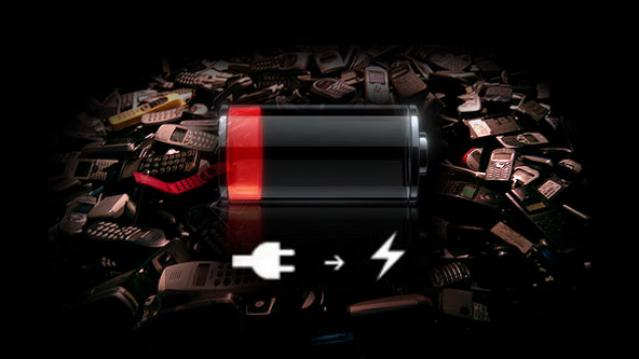Why Your Next Phone Could Be Powered By Seawater

Lithium is more than just a pretty solid Nirvana track – it’s also the reason that the portable computer in your pocket can keep on tweeting, e-mailing and otherwise vibrating for hours on end.
But soon there may not be enough available to go around.
As the demand for long-lasting batteries in cell-phones, laptops, and electric cars increases, so too does demand for Lithium, their key ingredient.
The U.S. Geological Survey estimated recently that conventional lithium reserves provide enough for production of 37,000 tons of the element per year for 365 years. That sounds like a lot, but with over a million electric cars expected in 2020, the development of battery clusters that power smart homes (like Tesla’s Powerwall), and increasing availability of lithium-powered consumer electronics, demand is sure to rise exponentially every year.
To battle the problem of Lithium shortage, researchers are looking to some unconventional sources. In Japan, for instance, scientists at the Atomic Energy Agency are working on a method to extract lithium from seawater through dialysis. According to a report from MIT Technology Review, “The system is based on a dialysis cell with a membrane consisting of a superconductor material,” a sentence which presumably means something to someone, somewhere.
Though the method is a long way away from being used commercially, one of the lead scientists on the project, Tsuyoshi Hoshino wrote that this particular method of extracting Lithium “shows good energy efficiency and is easily scalable.” Hoshino adds that his method could be commercialized in five years.
If Hoshino’s method makes it to commercialization, it could be a huge boom for the lithium battery industry, especially to powerhouse Tesla. Mineral assays of Nevada’s salt lakes have shown promising concentrations of lithium, which also happens to be where the battery pioneer plans to build its massive battery production plant, known as the “Gigafactory.”
For now, though, we’re stuck with a reliance on more conventional lithium sources.
Deficit Hits $738.6 Billion in First 8 Months of Fiscal Year

The U.S. budget deficit grew to $738.6 billion in the first eight months of the current fiscal year – an increase of $206 billion, or 38.8%, over the deficit recorded during the same period a year earlier. Bloomberg’s Sarah McGregor notes that the big increase occurred despite a jump in tariff revenues, which have nearly doubled to $44.9 billion so far this fiscal year. But that increase, which contributed to an overall increase in revenues of 2.3%, was not enough to make up for the reduced revenues from the Republican tax cuts and a 9.3% increase in government spending.
Tweet of the Day: Revenues or Spending?

Rep. Kevin Brady (R-TX), ranking member of the House Ways and Means Committee and one of the authors of the 2017 Republican tax overhaul, told The Washington Post’s Heather Long Tuesday that the budget deficit is driven by excess spending, not a shortfall in revenues in the wake of the tax cuts. The Wall Street Journal’s Kate Davidson provided some inconvenient facts for Brady’s claim in a tweet, pointing out that government revenues as a share of GDP have fallen significantly since 2015, while spending has remained more or less constant.
Chart of the Day: The Decline in IRS Audits

Reviewing the recent annual report on tax statistics from the IRS, Robert Weinberger of the Tax Policy Center says it “tells a story of shrinking staff, fewer audits, and less customer service.” The agency had 22% fewer personnel in 2018 than it did in 2010, and its enforcement budget has fallen by nearly $1 billion, Weinberger writes. One obvious effect of the budget cuts has been a sharp reduction in the number of audits the agency has performed annually, which you can see in the chart below.
Number of the Day: $102 Million

President Trump’s golf playing has cost taxpayers $102 million in extra travel and security expenses, according to an analysis by the left-leaning HuffPost news site.
“The $102 million total to date spent on Trump’s presidential golfing represents 255 times the annual presidential salary he volunteered not to take. It is more than three times the cost of special counsel Robert Mueller’s investigation that Trump continually complains about. It would fund for six years the Special Olympics program that Trump’s proposed budget had originally cut to save money,” HuffPost’s S.V. Date writes.
Date says the White House did not respond to HuffPost’s requests for comment.
Americans See Tax-Paying as a Duty

The IRS may not be conducting audits like it used to, but according to the agency’s Data Book for 2018, most Americans still believe it’s not acceptable to cheat on your taxes. About 67% of respondents to an IRS opinion survey “completely agree” that it’s a civic duty to pay “a fair share of taxes,” and another 26% “mostly agree,” bringing the total in agreement to over 90%. Accounting Today says that attitude has been pretty consistent over the last decade.



